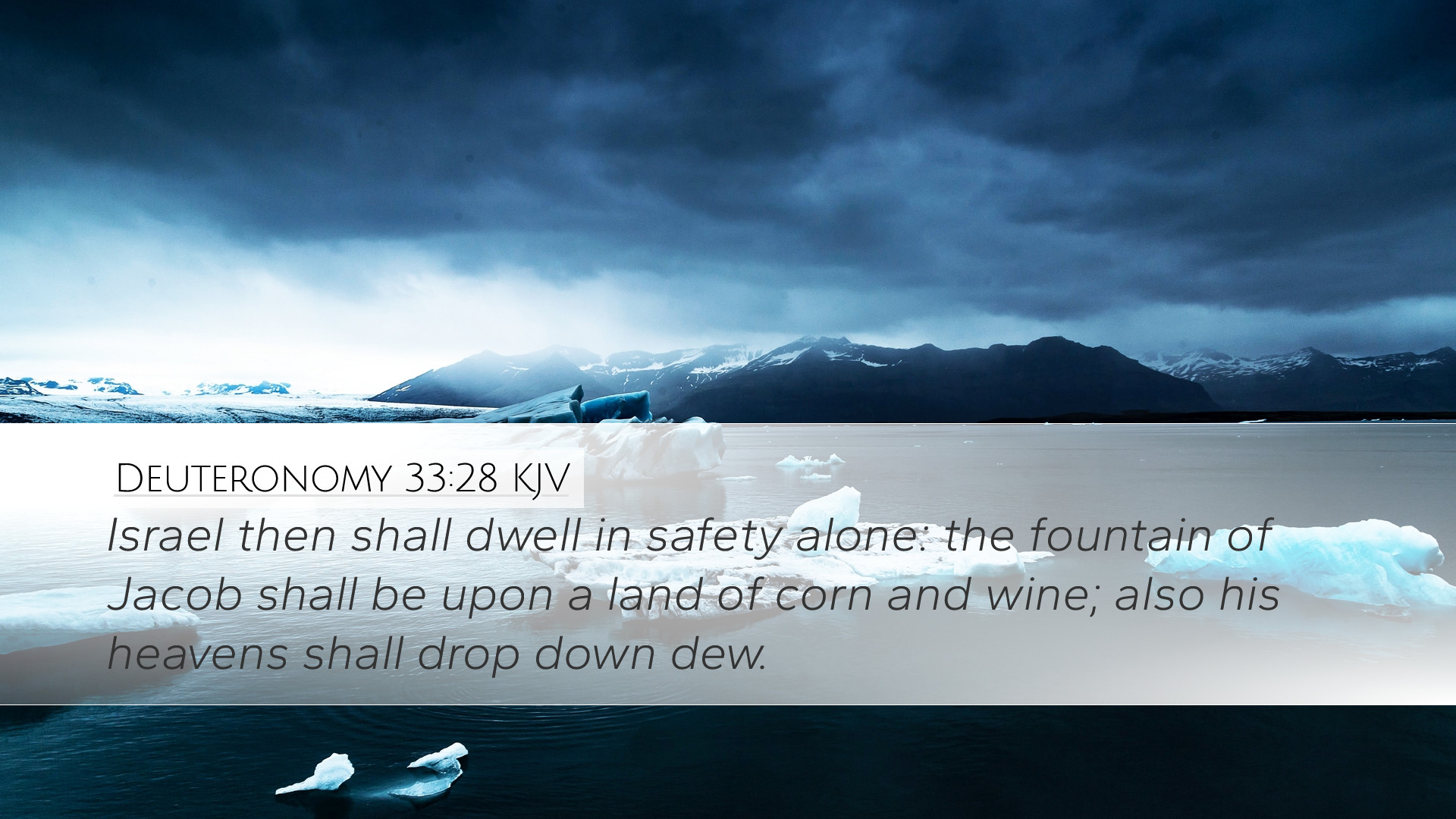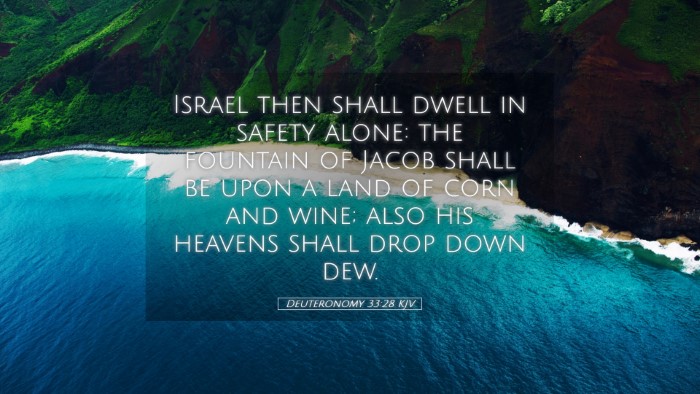Commentary on Deuteronomy 33:28
Verse Reference: Deuteronomy 33:28 - "Israel then will live in safety; the fountain of Jacob will be secure in a land of grain and new wine, where the heavens drop dew."
Introduction
This verse comes at the conclusion of Moses’ blessings upon the tribes of Israel, where he outlines the prosperity and peace that the nation will experience under God's guidance. The verse encapsulates a vision of a fruitful, secure existence promised to God’s people, illustrating not only physical abundance but also spiritual security.
Contextual Analysis
Moses’ Final Blessings: Deuteronomy 33 serves as a prophetic proclamation from Moses just before his death. He delineates the future of each tribe, enhancing the understanding of Israel’s divine destiny.
The Theme of Security: This verse follows a series of blessings that are rich in agricultural imagery, symbolizing not merely physical blessings but also spiritual prosperity.
Insights from Commentators
-
Matthew Henry:
Henry notes that the "fountain of Jacob" represents the source of all goodness and prosperity for the people of Israel. He emphasizes that their security comes from their covenant relationship with God, who provides them not only land but also sustenance and tranquility.
-
Albert Barnes:
Barnes elaborates on the imagery of “grain and new wine.” He interprets them as symbols of abundance and joy, indicating that the land promised to Israel is one of fertility and blessing. Furthermore, he underscores God's providential care, ensuring that the people thrive in their inheritance.
-
Adam Clarke:
Clarke discusses the phrase "where the heavens drop dew," suggesting divine favor upon the land. This metaphor indicates that God’s blessings are crucial for the flourishing of the people. Clarke points out that a dependence on divine provision is evident in this passage and serves as a reminder for Israel to remain faithful.
Theological Implications
Covenant Relationship: The blessings in this verse highlight the strong theme of God’s covenant with Israel. It reinforces the idea that their security and prosperity are contingent upon their faithfulness to God.
God’s Providence: This verse serves as a reminder of God’s continual providence. The agricultural imagery reflects God’s ability to provide for His people, linking physical sustenance to spiritual health.
Application for Today
Trust in God’s Provision: The message of safety and abundance is pertinent to modern believers. It calls for a deep trust in God's providence and care, encouraging faithfulness in the covenant relationship with God.
Community and Fellowship: For pastors and leaders, this verse encourages fostering a community that recognizes and celebrates the blessings of God. It reminds leaders of their role in guiding their congregations to acknowledge divine provision in their lives.
Conclusion
Deuteronomy 33:28 paints a profound picture of security and abundance rooted in divine providence. The insights from public domain commentaries, such as those by Matthew Henry, Albert Barnes, and Adam Clarke, enrich our understanding of this verse and its implications for the believer today. As we reflect on God's promises, may we be encouraged in our faith and commitment to the covenant relationship with Him.


